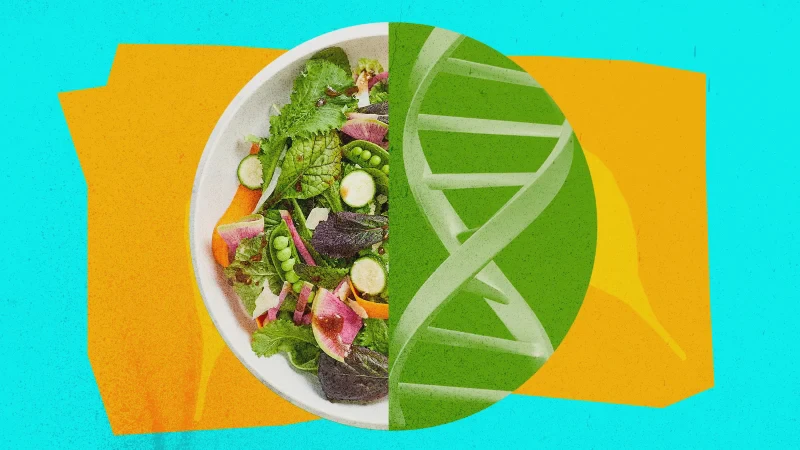CRISPR gene-edited foods: Three-quarters of Americans surveyed are oblivous to the latest innovations though the most informed view the technology positively
CRISPR gene-edited foods: Three-quarters of Americans surveyed are oblivous to the latest innovations though the most informed view the technology positively


Consumer opposition to genetic modification and genetically modified (GM) foods is well documented in many studies. Whether consumer perceptions and attitudes toward CRISPR applications in the agri-food sector will mirror those toward GMOs will likely depend on the nature of the application and the perceived benefits and risks of the use of CRISPR technology.
The research aims to assess consumer preferences and attitudes toward CRISPR applications in the food sector and estimate consumer willingness to pay for a food product developed using CRISPR technology to enhance food safety and confer health benefits. Additionally, the research assesses the impact of information provision on perceptions, attitudes and willingness to pay. Specifically, we consider the potential effect of both the nature of information provided (i.e., whether it emphasizes the differences between GM and CRISPR technology or not) and the delivery format (i.e., text versus video) used to present content-equivalent information.
…
[T]hree-fourths of participants had heard little or nothing at all about CRISPR technology, despite its recent publicity in human health applications. Similarly, three-fourths of participants reported knowing very little or nothing at all about the difference between CRISPR and GM technology. … Among respondents with high subjective and objective knowledge, 71% believed that the benefits of CRISPR gene-editing outweigh its risks, compared to only 33% of those with low subjective and objective knowledge. Results also reveal that use of CRISPR and GM technology in crop production was more acceptable to participants than its use in animals or humans. Furthermore, approximately 45% of participants believed that food crops and animals modified using CRISPR gene-editing technology were safe for consumption.However, 42% of the participants stated that they were not willing to pay more for food produced using CRISPR gene-edited technologies and this was particularly true for respondents with low subjective and objective knowledge. Participants most commonly cited concerns regarding the potential harm of CRISPR gene editing technology on animal health and the possibility that ownership rights might restrict its use, with these concerns being more pronounced among those with low subjective and objective knowledge. In addition to these concerns, respondents with high subjective and objective knowledge were also concerned about unintended negative impacts of CRISPR gene editing technology on traditional farming practices.
This is an excerpt. Read the original post here

 | Videos | More... |

Video: Nuclear energy will destroy us? Global warming is an existential threat? Chemicals are massacring bees? Donate to the Green Industrial Complex!
 | Bees & Pollinators | More... |

GLP podcast: Science journalism is a mess. Here’s how to fix it

Mosquito massacre: Can we safely tackle malaria with a CRISPR gene drive?

Are we facing an ‘Insect Apocalypse’ caused by ‘intensive, industrial’ farming and agricultural chemicals? The media say yes; Science says ‘no’
 | Infographics | More... |

Infographic: Global regulatory and health research agencies on whether glyphosate causes cancer
 | GMO FAQs | More... |

Why is there controversy over GMO foods but not GMO drugs?

How are GMOs labeled around the world?

How does genetic engineering differ from conventional breeding?
 | GLP Profiles | More... |

Alex Jones: Right-wing conspiracy theorist stokes fear of GMOs, pesticides to sell ‘health supplements’




 A single high dose of LSD can ease anxiety and depression for months
A single high dose of LSD can ease anxiety and depression for months From plastic coasters to human hearts: Inside the race to print the human body
From plastic coasters to human hearts: Inside the race to print the human body CRISPR pork: U.S. approves first gene-edited pigs for consumption
CRISPR pork: U.S. approves first gene-edited pigs for consumption ‘SuperAgers’: Why some people have the brains and memory capacity of people decades younger
‘SuperAgers’: Why some people have the brains and memory capacity of people decades younger  From ‘Frankenfood’ to superfood: Can the purple tomato overcome GMO myths to win over consumers?
From ‘Frankenfood’ to superfood: Can the purple tomato overcome GMO myths to win over consumers? Baby food panic, brought to you by trial lawyers hoping to prosecute by press release
Baby food panic, brought to you by trial lawyers hoping to prosecute by press release Viewpoint: Life and death decisions: RFK, Jr.’s shady FDA “expert panels” operate in secret with no transcripts or conflict of interest reviews
Viewpoint: Life and death decisions: RFK, Jr.’s shady FDA “expert panels” operate in secret with no transcripts or conflict of interest reviews When farmers deny science: The hypocrisy hurting agriculture’s credibility
When farmers deny science: The hypocrisy hurting agriculture’s credibility
